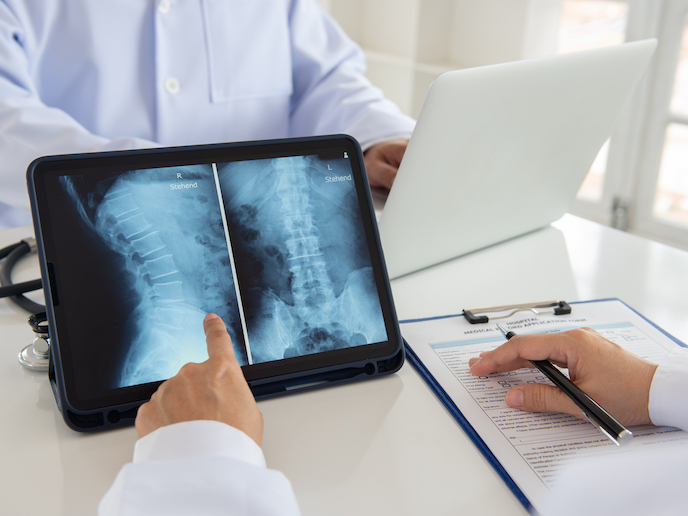Deep learning and AI boost medical diagnosis techniques
Image-based non-invasive procedures – such as magnetic resonance imaging(opens in new window) (MRI) and computed tomography(opens in new window) – are used to diagnose and monitor disease. In the era of high-performance computing (HPC) and big data, large image data sets from such procedures can be used to train sophisticated artificial intelligence (AI)-powered models, to identify and support new and more efficient ways of treating patients. The most accurate and useful of these models can be included in clinical diagnosing support systems (CDSS). These clinical support systems, which bring together patient-focused data and often include automated alerts and reminders for care staff, are a potential key benefit of the application of AI in medicine.
Computational efficiency and compatibility
“From a technical point of view, the benefits of CDSS are understood and appreciated,” says DeepHealth(opens in new window) technical manager Jon Ander Gomez from Valencia Polytechnic University(opens in new window) (UPV) in Spain. “The challenge is to develop more adaptations, and build on current developments.” The inspiration for the EU-funded DeepHealth project, which was coordinated by NTT DATA(opens in new window) (website in Spanish) in Spain, stemmed from collaborative work carried out between UPV and FISABIO(opens in new window). This work focused on MRI image processing to diagnose Alzheimer’s disease, as well as MRI imaging of the spine. “What we observed was a lack of homogeneity in software applications and libraries to build pipelines to process medical data – mainly images – and to train AI-based models in a quicker way,” explains Gomez. Achieving computing efficiencies when working on large medical image data sets was another identified need.
Applying medical test cases
DeepHealth therefore set about helping medical sector data scientists to more easily train AI-based models. Central to this has been the creation of two new libraries – the European Distributed Deep Learning Library(opens in new window) (EDDL) and the European Computer Vision Library(opens in new window) (ECVL). “The objective of the ECVL was to be able to load medical images in any format, and to carry out image transformations required to train deep neural networks,” notes DeepHealth project coordinator Monica Caballero from NTT DATA in Spain. The EDDL provides deep learning functionalities, in addition to distributing workload between available computing resources. Adapting both libraries to ensure compatibility with different operating platforms was a key outcome. Both libraries were then integrated into seven software platforms, and evaluated using 15 end-use cases(opens in new window). These cases included, for example, colon cancer diagnosis and lung cancer diagnosis, as well migraine prediction and epileptic seizure prediction. In each case, the project team was able to demonstrate the benefits of applying deep learning techniques to diagnosing specific conditions.
Open-source tool for enhanced diagnosis
The ECVL and EDDL are the core libraries of the DeepHealth toolkit(opens in new window). This includes a back end that offers all the functionalities of the libraries, as well as a front end that features a web-based user interface. “This allows data scientists with no profound knowledge of deep learning, computer vision or HPC to carry out a range of applications,” says Gomez. This toolkit is open-source and free. “Our aim now is to promote use of the DeepHealth toolkit – and in particular the DeepHealth libraries – among both research institutions and industry,” remarks Caballero. In the meantime, the libraries, and toolkit as a whole, will continue to be improved. By making large data sets of medical images more accessible, shareable and efficient for processing, DeepHealth has made an important contribution towards more targeted healthcare and improved patient treatment.







